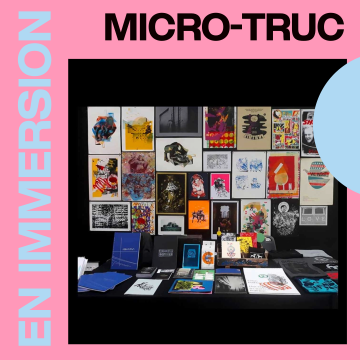11 nov. 2021Mnemozine: Thought experiments in the digital space
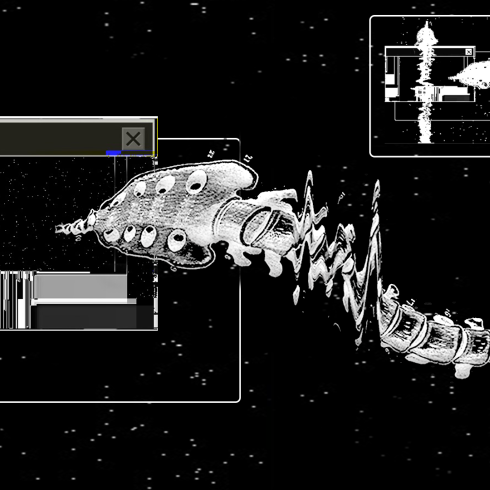
Situated at the intersection of philosophical enquiry and artistic expression, the recently founded collective Mnemozine takes an experimental approach in its interdisciplinary research on the challenges of our time, tackling thorny questions in the digital space for their inaugural season Spines, cables and other bodies. Here the collective examines the effect artificial intelligence might have on our embodied experience and what new corpo-realities emerge as a result; what happens when algorithms and bodies are intertwined ever closer in the virtual realm?
These are some of the questions that Claire Buchler, Christophe Rippinger, Mathieu Buchler and Lynn Klemmer have been raising in their recent projects, which include a collaboration with Casino Luxembourg - Forum d'art contemporain for the conference cycle Am I AI? and the exhibition Sticky flames. Bodies, objects and affects at Casino Display. Drawing on their respective backgrounds in visual art, sociology, philosophy and media studies, the members of the collective aim to accompany current artistic discourses, opening them up to a wider public and encouraging people to engage critically with the cultural landscape.
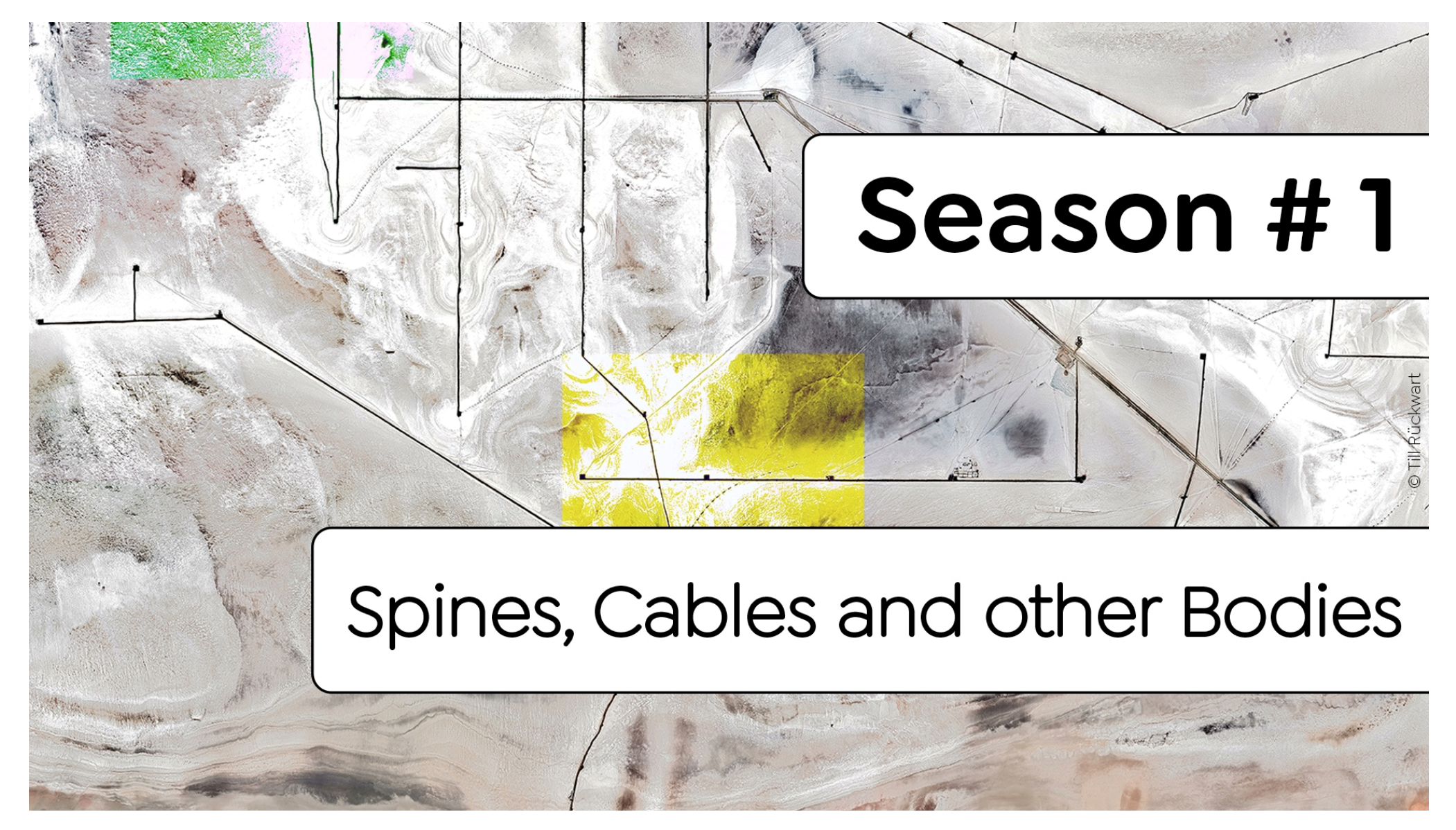
© Mnemozine
Experimental writing beyond academia
Acting as “an outlet for philosophical writing outside of academia”, as Mathieu puts it, Mnemozine provides a space for texts that might be considered too experimental for scholarly publications and peer-reviewed journals. The zine section of the platform features a plethora of work including Till Rückwart’s Salty Glitches, a counter mapping project that highlights minor malfunctions in Google Maps’ satellite images to problematise notions of truth in digital media and to illustrate the fault lines along which our society is constructed.
“There are so many people doing interesting things, but who don’t necessarily have a space to share their work,” notes Claire, which is why the collective has launched a call of submissions for articles, fiction, essays and artworks that investigate the digital space through the lens of the body. Mnemozine thus offers multiple points of entry to the thematic focus of the season, adopting a dynamic, shifting structure that responds to developments and questions by mutating into new forms. This fluid, non-linear approach draws on the concept of the rhizome as developed by Deleuze and Guattari which rejects the hierarchical and the chronological in favour of hybrid formats and multiplicity.
Reinventing the academic conference
In addition to being a publishing platform, Mnemozine is also engaged in a series of offline events designed to bridge the gap between philosophical theory and creative practices, making contemporary art work more accessible to the public. “Academic conferences are often self-referential and only speak to a very specific audience”, points out Mathieu. The collective wants to move beyond this format and stage events that connect public intellectuals and spark lively discussions all while maintaining the critical scrutiny that philosophical questions require. Lynn notes that “In Luxembourg Q&As tend to be fairly quiet. People are hesitant to voice strong opinions or have heated debates. We want to shake that up a bit.”
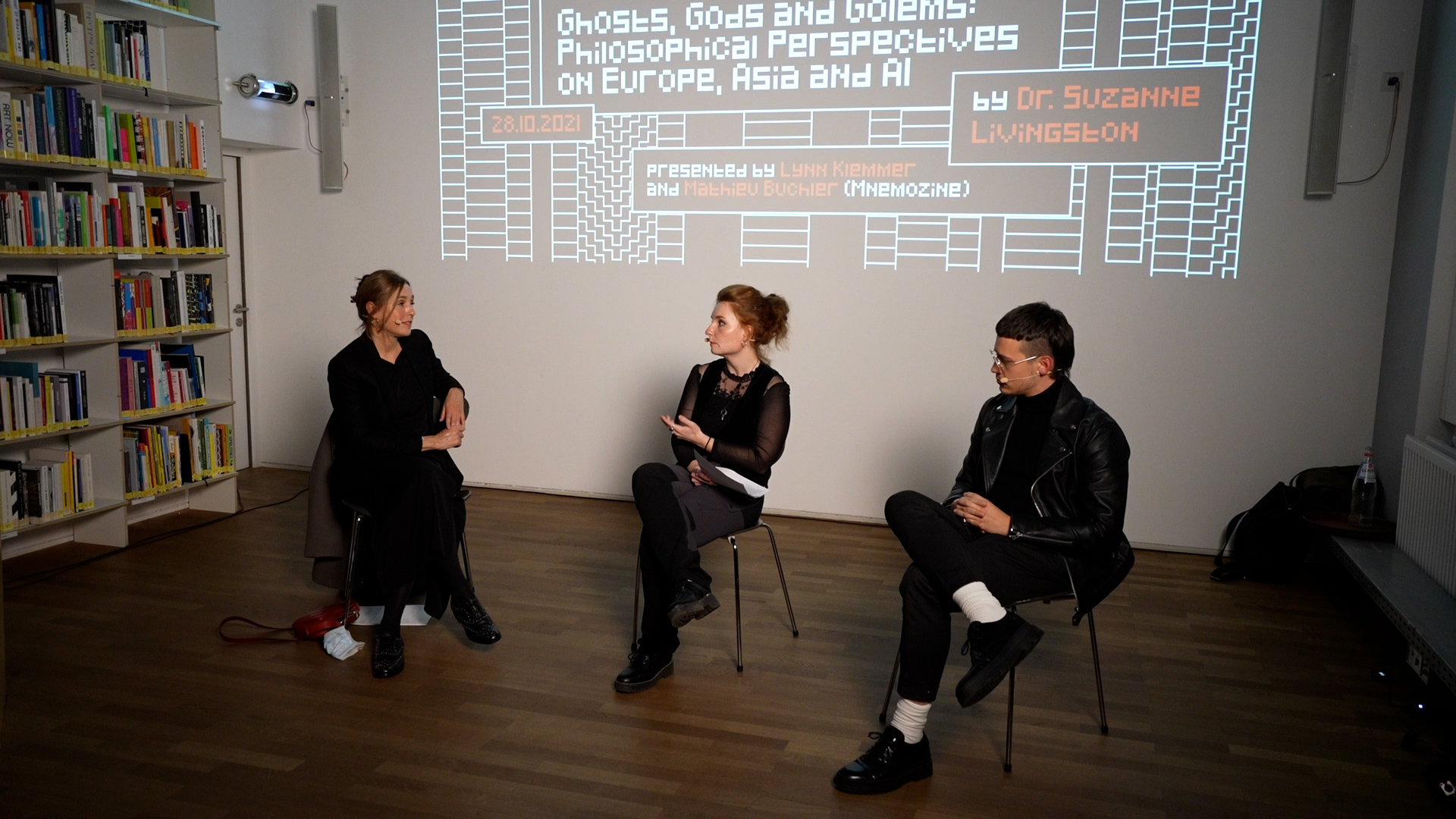
Am I AI? © SKIN
Online mind maps and strategies of resistance
Interacting with the audience is also a key element in Mnemozine’s accompanying programme for the Casino’s latest conference cycle about the far-reaching impact of AI on society, from deepfakes to digital profiling. Notably, the collective launched a collaborative research project in the form of an online mind map called Living Glossary to encourage people to share thoughts related to the lecture series, thus moving this content beyond the actual conference room. The resulting mind map will be exhibited at the Casino in February 2022. “It’ll look a bit like a murder mystery, with red string connecting different points on the wall” adds Lynn.
Mnemozine is also planning to stage two workshops early next year. The first one is aimed at students and shows how the algorithms powering our devices work, encouraging the participants to see the structure and agenda behind the technology and highlighting how algorithms can often be reductive and discriminatory. Crucially, the workshop also discusses strategies of resistance and how to take back the power by manipulating interfaces. The second workshop is designed with teachers in mind and offers critical perspectives on AI, algorithms and the digital age. The collective sees an opportunity here to shape the new “Digital sciences” subject that was introduced in Luxembourgish schools only two months ago.
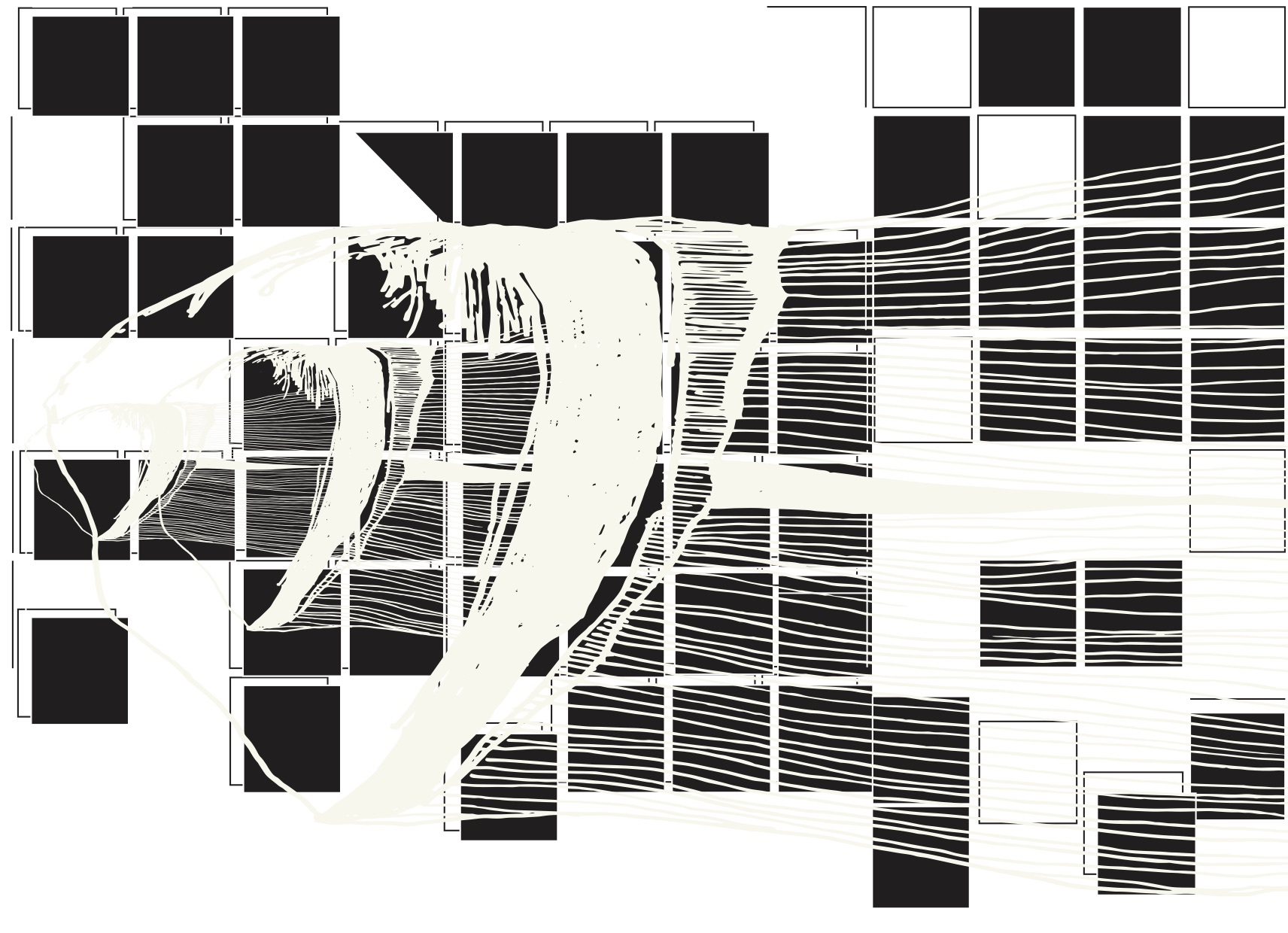
© Mnemozine
Artistic responses to bodies and affects
A playful allusion to flame wars, which refers to the heated arguments users have in online forums, Sticky flames was co-curated by Mnemozine and Nadina Faljic and opens this evening at Casino Display. Relating to different notions of the body and affects, the exhibition showcases the work of five recent art school graduates from the Greater Region and Brussels, namely Alexandre Caretti, Ksenia Khmelnitskaya, Darja Linder, Jonathan Maus and Bruno Oliveira. Spanning photography, painting, performance and installation, the pieces on display are diverse, and the job of the collective was to develop a conceptual framework that brought together these creative practices. “It was great to see how respectful the artists were of each other’s work,” observes Lynn, “everyone wanted to give each other the space they needed to develop their pieces.” This weekend, the collective is also putting on an event for Luxembourg Art Week where the artists will share some insights into their work.
Moving beyond contemporary art
Besides having a physical publication down the line, Mnemozine also aims to move beyond contemporary art and organise concerts with music not often played in Luxembourg and perhaps even dabble in literature, always bringing their signature blend of philosophy and sociology to the table. As to next season’s theme, the collective is still playing around with ideas; “We’ll definitely get some inspiration for what we’ll do next in the coming months,” says Mathieu, “It’s all about finding a question that has relevance to what’s going on in the present.”
Les plus populaires
- 20 juil. 2023
- 04 avr. 2024
- 27 mar. 2024
- 26 mar. 2024
ARTICLES
Articles
19 avr. 2024Micro-Truc
Articles
15 avr. 2024TAKEOVER – METAL EDITION
Articles
12 avr. 2024